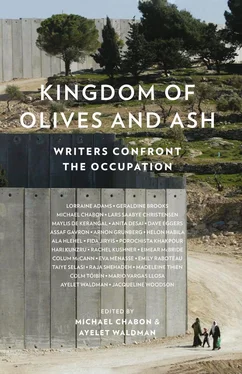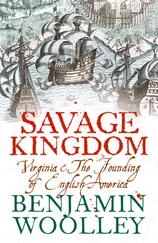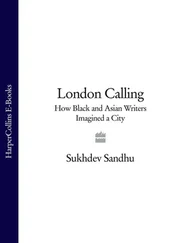BLOATED TIME AND THE DEATH OF MEANING
ALA HLEHEL
THE OCCUPATION DEPRIVES YOU OF YOUR HUMANITY BY DEPRIVING you of the ability to control time.
A free human being controls his time: he gets up when he wants and goes to bed when he wants; he goes to work according to a simple daily routine; she visits her relatives and her fiancé; he goes to the movies; she goes for a walk amid nature around her home any time she wishes. A human being is human because he makes his own decisions, because he has the ability to plan for tomorrow and the day after tomorrow, for next week and for the next ten years. A human being pursues her freedom through her ability to control her time. Freedom guarantees that simple, extraordinary, and sometimes hard-to-define thing: dignity.
The occupation is a machine: a complex, octopus-like regime that functions to exhaust those who are subject to it. It is a regime based on repression under the cover of administrative legitimacy, the courts, and legal authority. At first glance, everything is legal, and human rights are vouched for. A boy accused of throwing stones will enjoy legal representation in the military court, and an interpreter, and his mother’s right to weep yearningly in front of him for the four minutes the expeditious deliberation lasts in the reinforced plastic trailer. Tables, chairs, computers, soldiers male and female, secretaries, the national emblem, its flag, smart security cameras, a metal frame around the place where the accused are seated, a brown wooden podium behind which stands the defense attorney, white shirts with black neckties, an impatient military judge, and three young men in the prime of life who threw stones at a military jeep during a demonstration. Everything but justice.
The machine resembles an old clock with its cogwheels: each wheel turns and pushes the wheel interlocked with it to turn as well. Cogwheel turns cogwheel turns cogwheel, and so on. And so the occupation machine is so tightly wound, integrated, and coherent that it is hard to distinguish its beginning from its end. Who drives whom? Do the settlements drive the government, or vice versa? Do financial resources drive the ideology, or is it the other way around? Does the army drive the security justifications, or is it the other way around? Do the bypass roads drive settlement population growth, or is it the other way around?
Why do Palestinians throw stones at the soldiers’ and settlers’ vehicles? Because they are jealous of their wheels’ ability to turn endlessly in search of five-star bypass roads. It is a simple and human jealousy; the jealousy of those abandoned behind an illusory, unwritten line, watching life pass by at an insane pace. How does a Palestinian know life is passing by? By the endless red tile roofs, which stand out, stand out and increase, amid the verdancy of his confiscated land. The red tiles are in service to the occupation. They are the truest indicator of time, over fifty years of killing time. In a public square in a European town, a clever way of marking the passing of the daylight hours was invented: from within a huge clock emerged a metal soldier carrying a tiny pistol; he would mechanically raise his metal arm and fire one shot into the air as each hour struck, and then return into the clock. A creative idea to embody the concept of killing time. A clear and direct borrowing, which yet remains baffling in its power and the coldness of its metal; the occupation is a cold metal that kills with savage cruelty the most important thing life affords us: the finite seconds we are given once and once alone. The seconds which provide a direct, clear, and profound sense of our humanity.
In the writers’ tour I took part in, time was a decisive factor: when we left the hotel, when we would arrive, when we would rest, when we would drink coffee, when we would get out of the car, when we’d come back to it. A free man divides his time into definable units. That is what differentiates him from a prisoner languishing in a huge prison: the manacled prisoner does not divide his time into definable units. Time, to him, is waking and sleep. When sleeping, he sleeps, and when he is awake, he waits for sleep. And so time loses its meaning, but the greater tragedy isn’t that; it is that time’s losing its meaning becomes part of the routine, a routine that he even starts to accept. The occupation does not kill you with bullets, most of the time, but with the pistol of time. Military jeeps arrive at the entrance to the village and unholster the pistol of time, and fire a bullet at it every hour on the hour. That is how the occupation kills you.
The occupation kills time and deprives a Palestinian of his basic dignity as a human being. There is a crushing, fatal sadness in this. God alone (according to Jewish exegesis) exists outside time. “In the beginning” means before time was created. It is the moment when God created time as a vessel to contain existence. God was before the creation of this verse and will continue to exist after it. The settlers believe that they were here before the creation of the era of the occupation and will remain here after it. Maimonides taught that this verse’s meaning was that time becomes manifest to us through the movement of palpable substances, and if these substances had not begun moving, time would disappear.
Time here proceeds in a circular movement, and so it does not move, it does not advance. Man turns in vicious circles of circular time, and so he is like a rodent on a hamster wheel: he runs, standing in place. Palestinians, abandoned to the occupation, search for fresh ways of killing the time that does not pass. Time weighs heavily on you, becoming as heavy as a dark winter cloudbank. Time needs to be managed, maneuvered, and directed. A Palestinian in the West Bank faces time more often than he ever faces a tank or a rifle. We smoke outside the car and try to do the impossible that every smoker understands: holding the cigarette in your hand and keeping it lit at the same time. In these moments, in which three minutes are stolen to take refuge in your fleeting pleasure in the claws of fatal despair, we realize that a man can endure anything, if he holds to his little habits. They are the last indicators of his humanity. “We cultivate hope,” is what Mahmoud Darwish said about those subjected to the blockade.
OVER THE PAST FEW DECADES, SETTLERS TOOK OVER TWO BUILDINGS IN Silwan in East Jerusalem, and that was the first spark in the great and manifold settlement operation, which we see today in more than ten buildings in Silwan and in the “City of David,” which was set up there as a site for ideological and religious tourism embodying quite simply the whole complex Zionist idea: a settler ideology with prominent colonial features under the cover of the Torah narrative. One of the settlers took revenge against his Palestinian neighbor by routing his sewer pipe by his house. “Living in the shit” went from slang to a highly pungent reality. The Palestinian homeowner took us into a small room in his house overflowing with sewage. The smell was hideous, but the truly sad and painful thing was the silent sorrow in his wide eyes as he told us with such spirit what the settlers had done to him. To whom should he complain, whom should he beseech?
An armored minibus moves into the neighborhood, escorted by border police officers bristling with weapons. A settlement barracks outside time and context. Life in the alley comes to a halt while the sons of the settlers returning from school climb out and go into the building, Yonatan’s Building, built there as tall as a middle finger aimed at them all. Suddenly you understand the meaning of “the right of self-determination,” which the Palestinians demand. It is simply the right to walk down the street by your house whenever you want, without being searched or pursued by security. The borders, the capital, the security arrangements, the control over resources, all of these abridge your ability to walk down the street by your house without being insulted or besieged or interrogated, and, most important, without giving up this simple right, the right to walk down the street without fear. The occupation drains your desire to live, to take chances, to walk at random down the street without a defined direction or plan specific enough to satisfy a soldier’s curiosity.
Читать дальше











